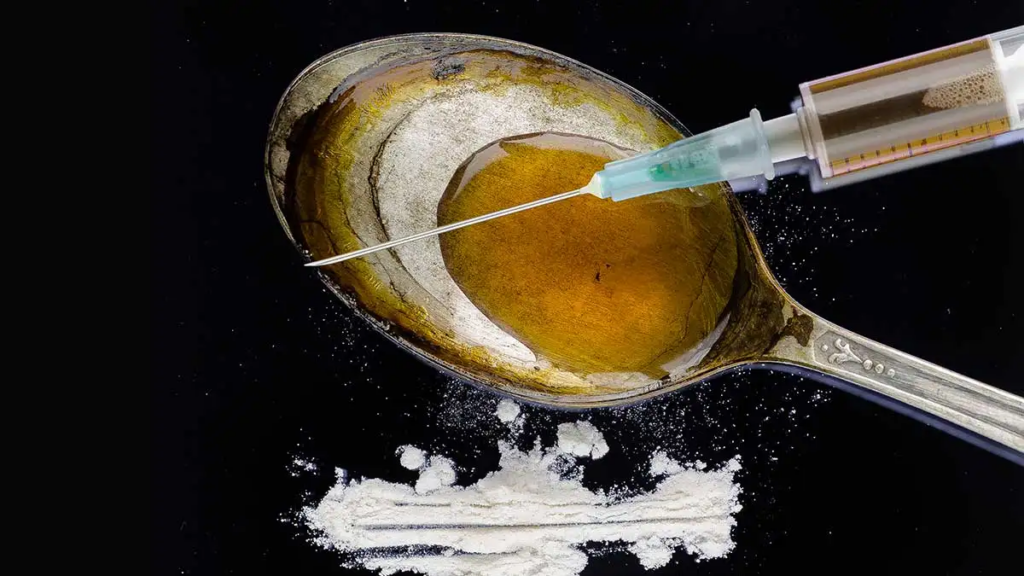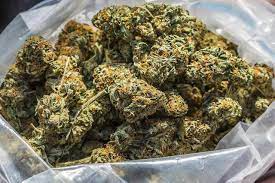The decriminalisation of illegal drugs: a legal minefield – Will Sellers
The legal statuses of certain drugs are a contentious topic, one that is debated often and has been for over a century now. I am going to start by giving a brief history of drugs policies in the UK and then move on to where they should go.
The first modern drug regulation law was passed in 1868 and this was the Pharmacy Act, which set controls on the sales of poisons and drugs which reserved opium sales to professional control. The impact of these laws reduced deaths due to opium use from 6.4 per million to 4.5 per million in adults, and in children under 5 from 20.5 per million to 6.5. Surely then, from these few statistics, we can conclude that drug prohibition laws were effective and had a positive effect on the nation. When WW1 started and the Defence of the Realm Act was passed, the government were given the ability to criminalise specific activities. Throughout WW1, public attitudes towards drugs changed and they began to be associated with prostitution, vice and immorality, which led to unprecedented drug laws in 1916 banning the possession and dispensation of all narcotics, including opium and cocaine, which later extended to include cannabis. What followed these laws is known as the Rolleston Era, during which the medical treatment of dependent users was separated from the punishment of unregulated use and supply. This policy was maintained in Britain and nowhere else until 1964, and during these 4 decades or so, drug use remained low; there was relatively little recreational use and few dependent users, who were prescribed drugs by their doctors as part of their treatment.
The medical profession had worked ethically up until the 60s, however, at this time some became corrupt and started prescribing large amounts of heroin, which was directed into the illegal market. In 1961 the international Single Convention on Narcotic Drugs was introduced to control global drug trading and use, and it banned countries from treating addicts by prescribing illegal substances, though countries did not have to adhere to this. Substances such as LSD, cannabis and amphetamines began to become significant in the UK, and following pressure from the US, the UK implemented the 1964 drugs act.

A string of further laws has followed, which include the ability to sentence people for life for the distribution of drugs and the ability for the police to perform forced drugs tests. One would imagine that these significantly increased laws would decrease the number of users and people dying from drugs, so if we were to take the opium use deaths from 1868 and compared it to the opium use deaths today, the latter would surely be much smaller?
The answer to this question is no, not at all. In fact, in 2020 the number of people that died due to opium use was 33.7 per million, a figure over 5 times larger than that 151 years beforehand. Whilst that has been a rather long introduction, I think it is very important to set the scene as it were for why this is such a difficult topic to create laws for. It seems that some restriction is enough, but that more restriction in the face of more potent drugs and far greater quantities has failed. I will draw my conclusion at the end of this talk, but I want to say now that in my mind, and many others, the war on drugs and their prohibition has been a failure – it does not work. The first point of contention I have with the criminalisation of illegal drugs is that a huge part of the argument for their prohibition is the danger and threat they pose. I will later go on to question how dangerous drugs are, but now I want to raise the point of whether it is for the criminal law to stop people from doing things that are potentially very dangerous.
In my garden at home, there is a tall silver birch tree that is quite thin and not particularly strong. If I were to climb up this tree, all the way to the top there is a strong chance that, due to my weight, the tree would snap and I would fall 20 metres or so to the ground, probably breaking several bones and even dying. If I did this, I would be very stupid, but do I deserve to be imprisoned for putting myself in that dangerous position? Should a policeman get me down, seize the tree and put me in a cell for doing something so dangerous? I don’t think so.

On the other hand, if I could drive and were to drink heavily before going somewhere and were stopped by the police and arrested for drink driving, I think I should be punished by the state. Both of the situations I have described involve me putting myself in great danger, but the reason why I should be punished for my actions in the second and not the first is that I have put other people in danger by drink driving.
In taking drugs, a person is putting themselves at risk, but not other people, and so for that, provided they are an adult and are capable of making their own decisions, they do not deserve to be punished. At this point, the argument that people are more violent etc is raised, but research, whilst it is quite limited due to the illegality of drugs, suggests that people on drugs such as cocaine are not likely to be much more, if at all more violent than those that are drunk. Furthermore, whilst there is a link between some drugs and violence, this is not the case for all drugs, with cannabis for example causing people to be far less violent than drunk people. This would therefore suggest that illicit drug use generally does not inherently cause more violence than alcohol use. As such, the major threat of use is to the user, and only if we are willing to prosecute people for doing perilous things should we use it as a line of argument for criminalisation.
What I’ve just said is largely based around the idea that illegal drugs are incredibly dangerous, however, are they really? I think it is pertinent to highlight at this point that other than their criminal status, drugs illegal and legal is the same in the sense that they have an effect on their user and a negative impact. Some regulated licit drugs such as morphine are opiates, and one of the very few distinctions between morphine and heroin is their potency – heroin is 3 times as potent as morphine, meaning it is far easier to overdose on and become addicted to. Heroin is listed as the most addictive substance on the planet. Whilst heroin is undoubtedly dangerous due to its strength, it is what accompanies the substance that presents more danger than the effect the drug has on its user. Heroin is largely taken intravenously (through injection) and this requires the use of needles, and these needles are often shared between addicts leading to the spread of blood diseases such as HIV. Furthermore, due to the dependency, the addicts have on the drug they are likely to live unhygienically with very little care for society or themselves, leading them to steal if they need to fund their addiction. Heroin is probably the most upsetting drug too as its users become slaves to it, to the point that they can stop caring for their children if they have any, leading to child abuse.

It is for this reason that the criminalisation of opium mentioned earlier had such a large effect upon deaths under the age of 5 because if parents were using opiates they were likely not looking after their children, and at that stage, there was little in the form of social care. I absolutely think that heroin should be illegal due to these reasons, as legal or not the inherent issues surrounding heroin use lead to misery and suffering. I will concede however that a level of decriminalisation, strictly for users such as that during the Rolleston era would be beneficial as it would hopefully reduce disease surrounding needle sharing, can prevent overdoses through prescription and hopefully lead users back to a state of normalcy and stability. Evidence for this comes from Portugal. In 1970, Portugal in line with the 1961 Single Convention on Narcotic Drugs brought about criminalisation, despite drug use at the time being somewhat of a non-issue. Over the years that followed, drug use in Portugal surged following the end of the Estado Novo regime, which prevented its people from even drinking coca-cola.
By 2000, 1% of the Portuguese population was addicted to heroin, and the issue gripped the nation as hospitals were filled with people that had HIV – it had the highest HIV infection rate in the EU. In 1995, over half the prison population were there for drug-related reasons, creating a large addicted inmate population. Nothing was working, and so Portugal took the radical step to in 2001 decriminalise drug use. Since then, rehab and education have become incredibly effective, to the point that Portugal’s drug-induced death rate has plummeted to 5 times less than the EU average. Drug use has declined also amongst the 15-24-year-olds, the age range most at risk of initiating drug use. Whilst there are large differences between the UK and Portugal, some lessons could be learnt from this in that a level of illegality such as a fine or imprisonment for repeated use could reduce drug deaths and lead to the betterment of our society.
At the other end of the spectrum as it were of drugs is cannabis, which is the most widely used by far and the least dangerous. Cannabis has been legalised in many countries in the world, such as Canada and many states in the US, and I believe that this should happen in the UK.

Since 2015, an estimated £2.5 billion of taxpayer money has been spent detaining users, a catastrophic waste of money, especially following the pandemic where money is tighter than ever for many. The health impacts of cannabis have been studied quite a lot, and whilst there are some negative effects, these cannot be considered worse than tobacco use or possibly alcohol consumption provided it is not smoked. Whilst cannabis smoke is carcinogenic, the amount consumed by the user is typically much less than that of a tobacco user, and it can be consumed through edibles that eradicate this risk. What’s more, sales of cannabis are estimated to reach $25 billion by 2025 annually in the US – it is a strong market that can help the UK grow its economy. These sales were they to happen legally in the UK would all be taxed and bring in billions for the government, potentially reducing taxes and increasing budgets. I haven’t even mentioned the widespread medical uses for cannabis, such as chronic pain relief and there is some evidence that cannabinoids actually can fight some types of cancer. A less obvious benefit of legalisation is the ending of the exploitation of many people that occurs in the illegal market. I’m sure many of you have seen Narcos on Netflix, and a large component of that series is violence between warring factions. If cannabis were legalised the illegal market would likely evaporate, reducing money being brought in for crime syndicates around the world.
Ultimately, as I hope this presentation has explained, there is a huge variance between illegal drugs, and there are some that absolutely should be illegal, and some that should in my mind not be illegal at all. The cannabis market is a wasted economic opportunity for the UK and whilst it is not without risks, it is not more dangerous than other legal substances. As mentioned earlier, there is strong evidence to suggest that decriminalisation for the use of heroin would be beneficial as putting users in prison does not help them, rather putting them through rehabilitation programmes would be a much better solution. That is not to say that users that do not make any progress should not be imprisoned, nor that drug dealers should not be imprisoned, as those profiteering off of others’ medical issues should be punished. More fluidity when it comes to the prosecution of drug offences would be beneficial, though it is difficult to say what drugs should and shouldn’t be illegal due to the significant lack of evidence surrounding them.
WS















Post Comment
You must be logged in to post a comment.